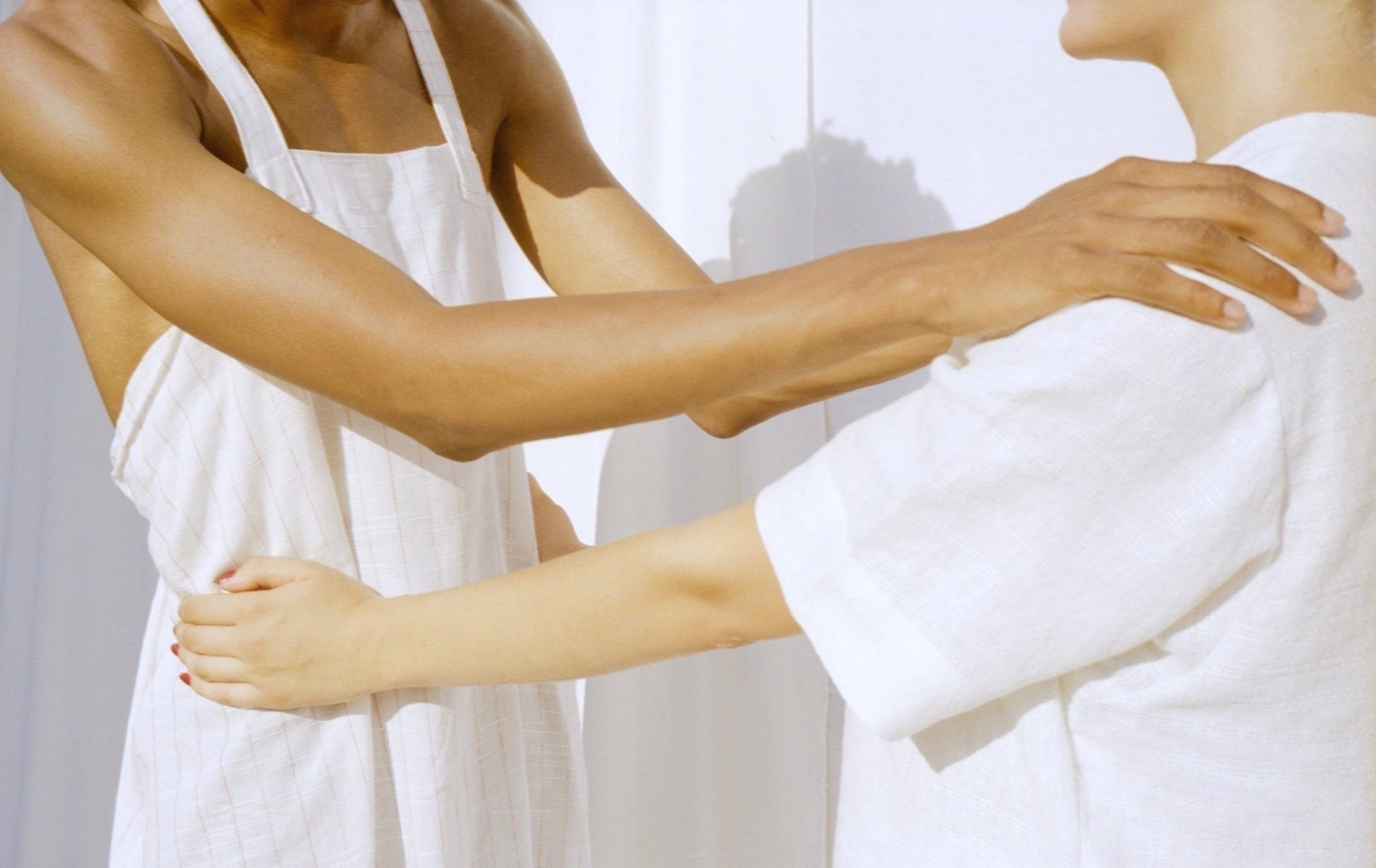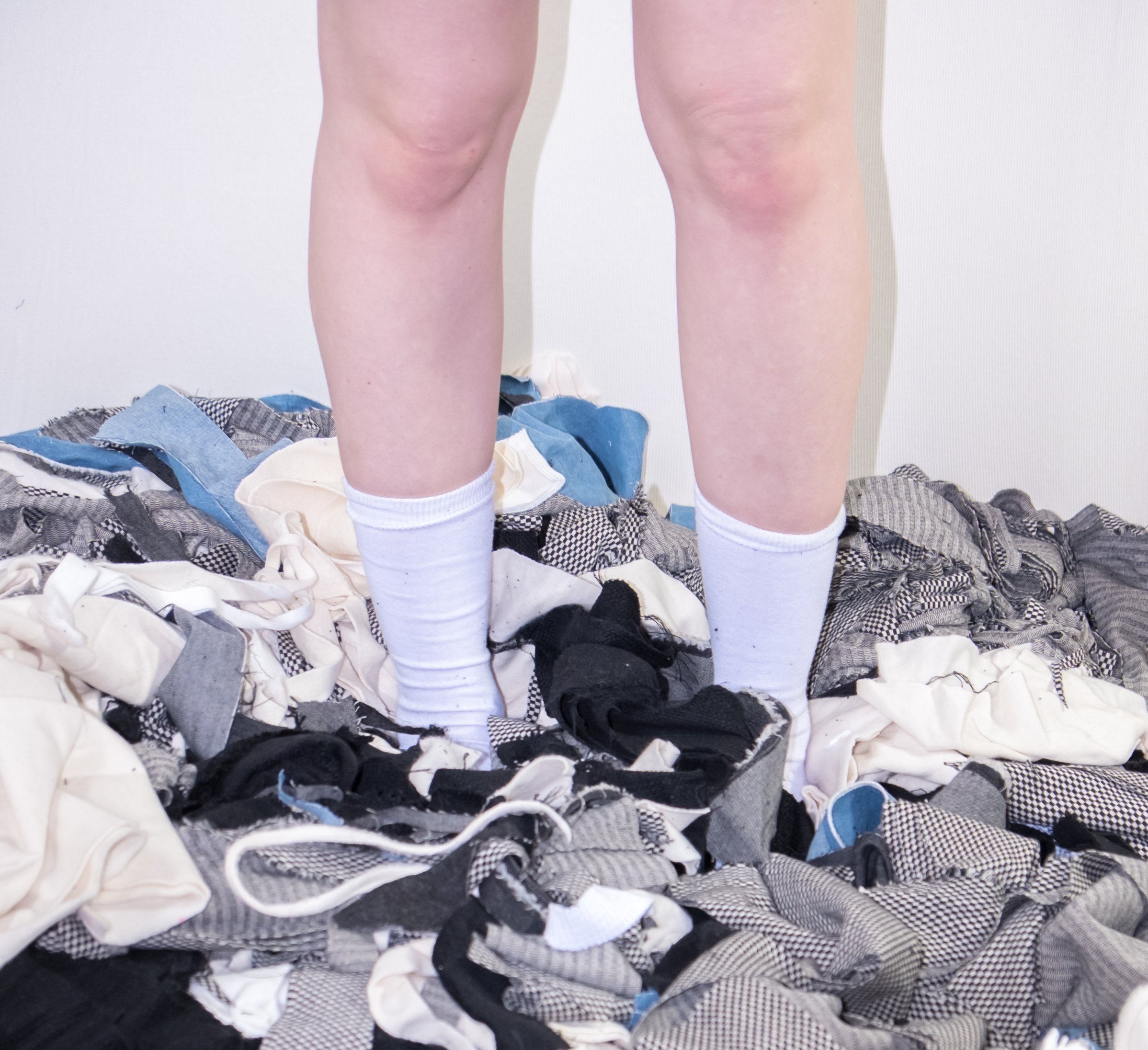
before production
O R G A N I C Conventional cotton is one of the most pesticide-intensive crops on the planet. These chemicals harm our soil, waterways and farm workers. We only work with domestic organic cotton, which requires no pesticides and up to 90% less water.
D E A D S T O C K Fast fashion encourages fabric to be made cheaply and overproduced. In the US alone, brands send 11 million tons of extra fabric to be landfilled or incinerated every year. We salvage these fabrics at resale markets around the US to make as many new pieces as the discarded fabric allows. Waste is only waste if you waste it!
S U P P L Y C H A I N A typical cotton garment has already travelled the globe by the time you bring it home. Even cotton grown in the US is often shipped overseas to be processed, dyed and sewn before it’s shipped back to be sold. This fast fashion dynamic, fueled by the exploitation of cheap labor, accounts for 10% of all global carbon emissions.
Our cotton is grown organically in Lubbock, Texas. The yarn is then spun in Thomasville, NC and knitted into fabric in Clover, NC. We cut and sew the fabric in Cleveland, Ohio and, one day, you’ll compost it in your backyard. That’s 10,000 fewer miles traveled than the average cotton tee shirt.
in production
L O C A L - M A D E Cleveland was the second largest garment center in the US through the early 1900s. These jobs vanished by the ‘50s, as companies exploited cheap labor and lax regulations overseas. Now, we cut, sew, dye, photograph and recycle everything with our Cleveland community.
H U M A N R I G H T S The clothing and textile industry employs more than 80 million people worldwide, many of whom suffer within oppressive systems of forced labor, to produce the clothes we wear. Producing in Cleveland is the best way we can ensure fair wages, accountability and basic human rights.
N A T U R A L D Y E The textile industry uses ~45 million tons of chemicals each year, making it the second most polluting industry in the world (after oil). We use unbleached, undyed fabrics, eco-certified fiber reactive dyes, or our own botanical dyes to keep toxic chemicals out of our skin, soil and waterways.
I N C L U S I V E Many organic brands exclude potential customers with luxury pricing and limited sizing. We offer 8 unisex sizes, from 2XS-3XL. While we’ll never be able to compete with fast fashion pricing (and still pay local sewers a fair wage) we’re making organic clothing as accessible as we possibly can.
after production
L O W - W A S T E We save every scrap of fabric from our factory productions. We compost them into soil with Rustbelt Riders, pulp them into paper with The Morgan Conservatory and rework them into new pieces with local collaborators. Our zero-waste goal adds value to our community without adding volume to its landfills
C O M P O S T A B L E Even most 100% cotton clothing is saturated with pesticides, bleach, chemical dyes, and wrinkle and moisture repellants. Instead of decomposing within months, these garments toxify landfills while plastic buttons and industry-standard polyester thread linger for years. We soil test our toxin-free fabric and 100% cotton thread to be sure our organic collection can be fully composted in months.
Our more circular model aims to keep faan pieces in use longer and out of the landfill forever. We use only low-impact, renewable materials, down to our labels and thread, and try to limit production volume to our customer demand. Our DIY mending, dyeing and hemming tutorials help extend the life of your clothes. And when it’s time, return any of our organic cotton pieces to soil using our composting tutorial. We design waste out from the start.
C I R C U L A R Clothing production generally follows a linear model: companies extract or chemically-engineer materials, make products cheaply to maximize profit, sell what they can, throw away the rest, and start again. Consumers, in turn, throw these purchases away within 18 months, on average. This model adds 100 million tons of mostly synthetic textile waste to landfills each year.
[primary data: Ellen MacArthur Foundation]
local partners
- - - - -
- - - - -
- - - - -
- - - - -
- - - - -
- - - - -
- - - - -
- - - - -
- - - - -
- - - - -
price transparency
Here’s a rough accounting of costs per $60 faan tee:
$16 organic fabric (1.2yd) / freight +
$1 cotton thread / tags +
$3 sample development / grading +
$13 cutting / sewing +
$3 average shipping (after $6 customer rate) +
$1 packaging = $37 (total cost)
$23 invested back into studio / web costs and our next production

-
Sizing
Check your size on our unisex chart and learn more about our fit here~
-
Fabric Care
Some pointers on shrinkage and washing instructions here~
-
Ship + Return
We’ll ship your order plastic-free within three days. More info here~
-
Wholesale
Reach out about buying organic blanks in small volumes here~
-
DIY Care
Watch our Natural Dyeing, Hemming, Composting and Mending tutorials here~








